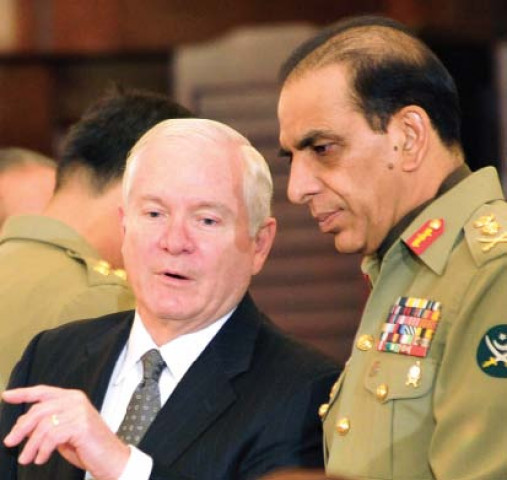US renews bonds with Pakistan Army
US proclaims turning point in a troubled relationship, with US money henceforth to serve the cause of democracy.

On Friday, in the wake of the latest tensions between the war partners, US President Barack Obama’s administration announced it would seek another $2 billion in aid for Pakistan – this time, destined for the military.
Director of the South Asia programme at the Centre for Strategic and International Studies Teresita Schaffer, a former US diplomat who has served in Islamabad, said the US faced a balancing act between working with the military and supporting civilian institutions.
“The US routinely has trouble figuring out exactly where that line belongs and how to stay on the right side of things,” said Schaffer.”Partly because the military in Pakistan is a can-do institution, much more so than the civilians,” she added.
“This is partly theatrics, but we as a people are magnetically drawn to an institution and a leader who says, ‘Yeah, I can help you with what you really want to get done,’” she said.
Army Chief General Ashfaq Parvez Kayani, who was present at the latest Strategic Dialogue in Washington, was unusually public last year in his criticism of Washington’s five-year, $7.5 billion civilian aid package, calling it undue foreign interference.
The bill’s authors described the aid as a way to improve US relations with ordinary Pakistanis and dent the allure of extremists in the nuclear power.
Director of the South Asia Centre at the Atlantic Council Shuja Nawaz said he did not see a shift so much in Washington’s relations with Pakistani military as with its perceptions of the civilians.
“I think the civilian government has missed a number of opportunities to show it is in charge and can take decisions rapidly and firmly, and floods were a very good example of that,” Nawaz said.
The US Congress needs to approve the $2 billion military package, which would be spread over five years.
While the Kerry-Lugar-Berman Act won wide backing last year, some US lawmakers have since voiced impatience at what they perceive as ingratitude from Pakistan.
Still, some analysts predicted that Congress would ultimately approve the military aid, which replaces an earlier five-year package that expired.
Lisa Curtis, a senior research fellow at the Heritage Foundation and former US policymaker on South Asia, said that a more critical test for military assistance to Pakistan may come next year.
Under the Kerry-Lugar-Berman Act, the administration must certify in 2011 that Pakistan is taking action against extremists on its soil for aid to continue, although the president has the power to waive any cut-off.
Published in The Express Tribune, October 25th, 2010.



















COMMENTS
Comments are moderated and generally will be posted if they are on-topic and not abusive.
For more information, please see our Comments FAQ